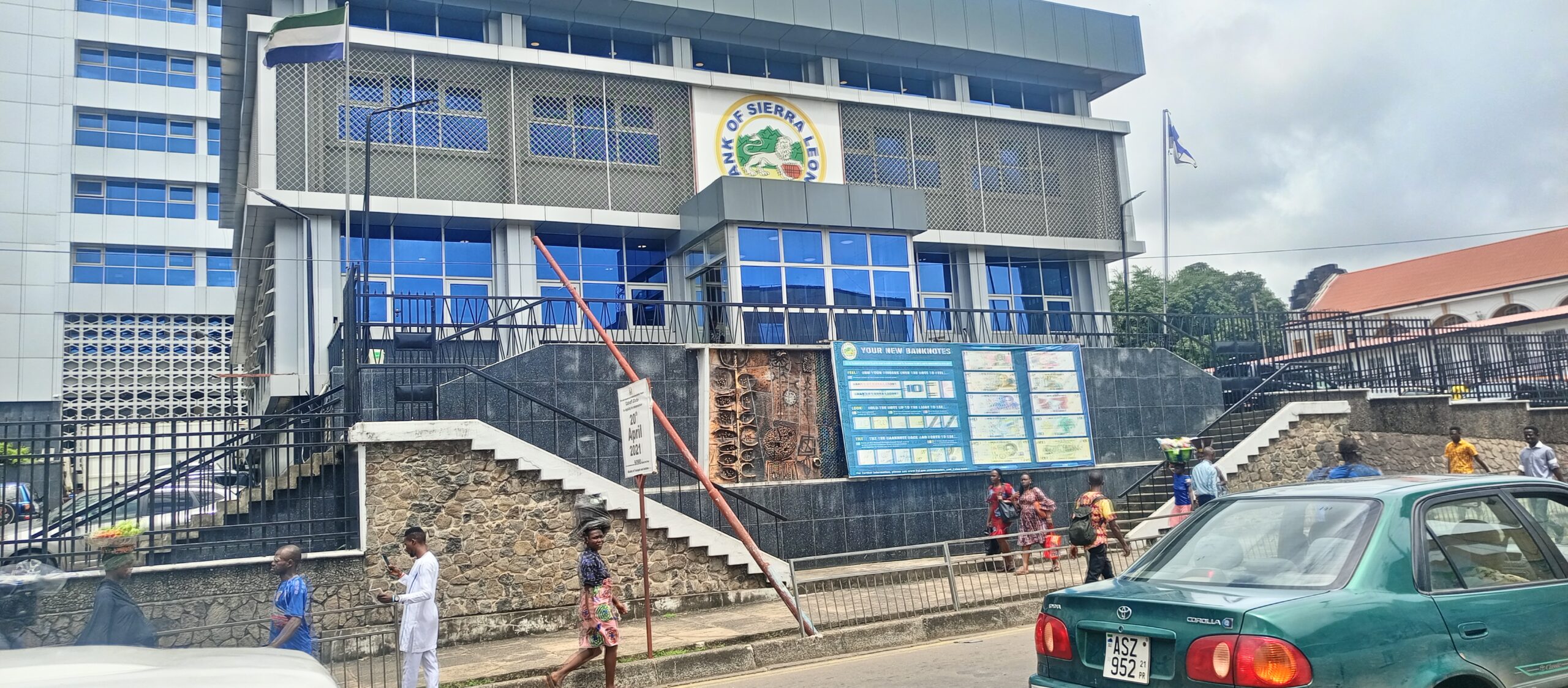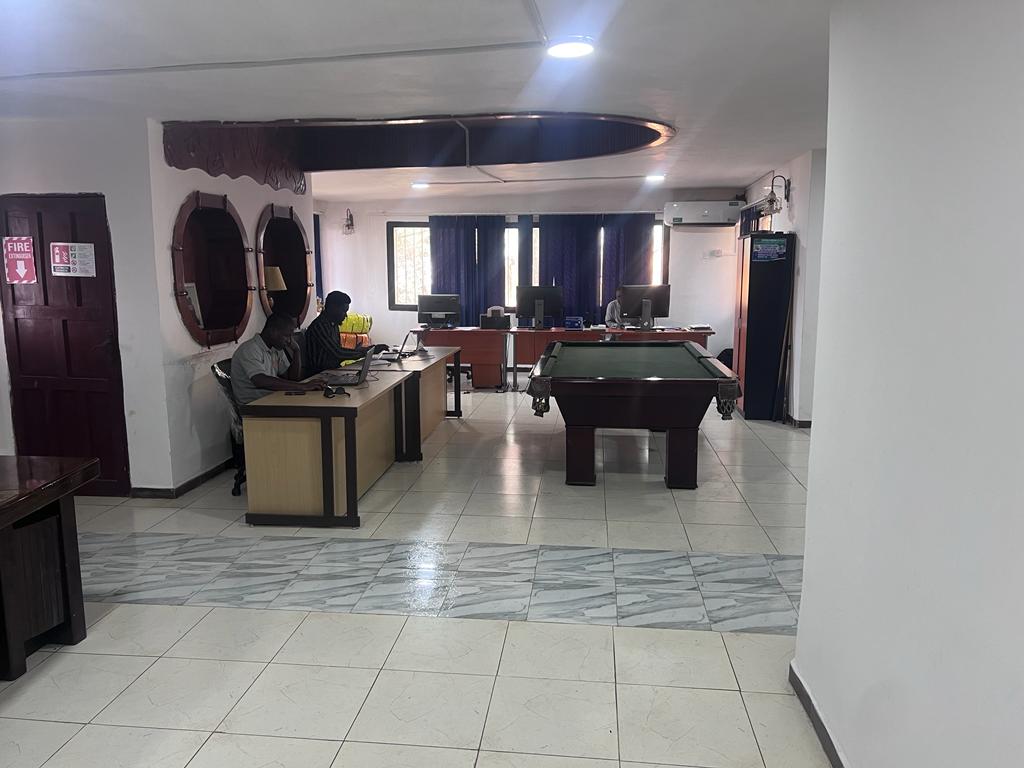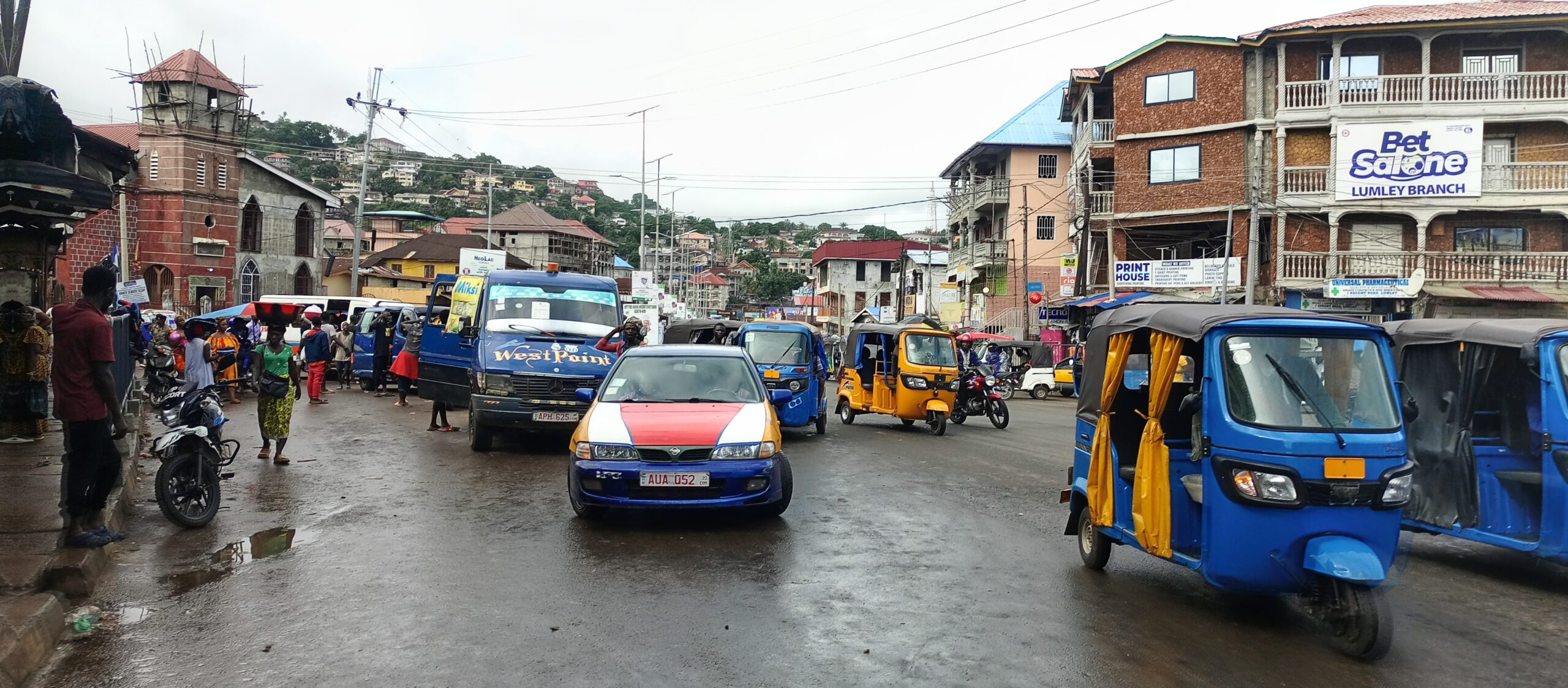As the boat glided through the waters separating Lungi from Freetown in Sierra Leone, Nigerian Afrobeats star Asake’s smash hit—“Terminator”—blared through the speakers. It was a few days before the Sierra Leone presidential election and there was excitement in the air.
At the entrance of the Lungi boat terminal, there is a signboard with the bold inscription “Naija Salone”, a catchphrase reflecting the synergy between both countries—“Naija” representing Nigeria and “Salone”, an indigenous Krio expression for Sierra Leone.
Throughout the boat trip between the airport and the city centre, passengers consisting of election observers from different parts of Africa, including this reporter, spoke excitedly about the Nigerian diaspora community and their place in the Sierra Leonean economy.
The Freetown International Airport, locally known as Lungi International Airport, is located in the coastal town of Lungi. It is the only international airport in the West African country, separated from Freetown, the nation’s capital city, by the Sierra Leone River.
After about 30 minutes of travel across the waters, the boat got to the terminal at Freetown and passengers disembarked. “How una dey,” a lady said gently at the arrival section of the terminal, beaming with a smile. When asked about her mastery of what sounded like a Nigerian expression of courtesy, she quipped: “I am Nigerian and my name is Ijeoma. Welcome to Freetown.”
Ijeoma would eventually direct this reporter and a few other passengers to another Nigerian lady, who works as a chauffeur for the boat servicing company, Sea Coach – arguably the biggest boat servicing company in Sierra Leone. The company, alongside numerous other businesses owned by Nigerians across different parts of Sierra Leone, provides jobs for residents and contributes immensely to the Sierra Leone economy.

Historical Insight
Sierra Leone holds a special place in the history of the transatlantic slave trade as the departure point for thousands of West African captives. The country is bordered by Guinea to the north-east, Liberia to the south-east, and the Atlantic Ocean to the south-west. With an estimated population of 7.4 million, Sierra Leone is known for its white-sand beaches lining the Freetown Peninsula. The official estimate for the country’s GDP was $14 billion at the end of 2023, in purchasing power parity terms.
Meanwhile, the socioeconomic relationship between Nigeria and Sierra Leone dates back to the nineteenth century and the dawn of the twentieth century, notably with the evolution of the Creole civilization. According to Beatric Awortu, a Nigerian scholar, the Creoles were said to have migrated to cities like Lagos, Abeokuta, Port Harcourt and Calabar, among others, strengthening inter-cultural and economic ties. Many Nigerians, on the other hand, also migrated to parts of Sierra Leone to facilitate trade and deepen economic interaction, a practice that has improved significantly in recent decades.
“There are many Nigerians doing business here and the number has increased significantly in the last few years,” I.K James, a Nigerian clothes seller, told PREMIUM TIMES at the ever-busy Sani Abacha Street in central Freetown. Mr James said he left Nigeria for Sierra Leone in 2018 and he has been able to grow his business and employ an assistant.

Apart from Freetown, the capital city, PREMIUM TIMES gathered that Nigerians reside in and are doing business in major towns and districts such as Bo City, Port Loko, Makeni, Waterloo and Keidu. “I have friends in major places across the country and they are Nigerians too. We have a big community here and our people are doing well,” quipped Mr James.
Trade, Economic Ties
In 2019, the government of Sierra Leone vowed to intensify its economic and trade cooperation with Nigeria with special emphasis on trade and investment promotion. The High Commissioner of Sierra Leone to Nigeria, Solomon Gembeh, maintained that both countries have had a long-standing relationship which could be further strengthened with increased trade, fostering economic development and regional integration, a core vision of ECOWAS.
Nigeria spent $13 billion in Sierra Leone and Liberia during the civil wars that engulfed both countries in the 1990s up until the early 2000s, as part of measures to maintain peace across the region. The Sierra Leonean authorities have over the years shown deliberate efforts to sustain the relationship and maximize the economic potential inherent in partnerships between both countries.
Last November, Nigerian indigenous vehicle manufacturing company, Innoson Vehicles, delivered the first set of vehicles manufactured for the Government of Sierra Leone as ordered by the Sierra Leonean Ministry of Defence. It was in fulfilment of a promise made during a working visit to Innoson Vehicles by the top hierarchy of the Sierra Leone Defence Ministry led by Edward Soloku, the minister of Internal Affairs.

Last week, F.A Oil Limited, a company owned by Nigerian billionaire and Africa’s richest woman, Folorunso Alakija, was awarded exploration rights in six offshore oil blocks, following the issuance of a Petroleum Licencing Agreement by the Government of Sierra Leone. The Sierra Leonean government noted that the licence agreement represents another level of cooperation opportunity between the Federal Republic of Nigeria and the Republic of Sierra Leone.
Before then, in January 2020, the chair of the ECOWAS Committee of Governors of Central Banks and Governor of the Bank of Sierra Leone, Kelfala Kallon, had disclosed a plan for a currency swap between Nigeria and Sierra Leone.

He decried the increasing dollarisation of West African economies and subsequent depreciation of national currencies in the region, adding that the agreement was aimed at providing sufficient local currency liquidity for Nigerian and Chinese industrialists and other businesses and reducing difficulties as they search for a third currency.
Although not much has been heard of the agreement ever since, the West African country has remained resolute in its desire to open up to Nigerian businesses, identifying the largest economy on the continent as its leading partner.

Earlier in September 2019, Mr Gembe called for Nigerian investments in Sierra Leone, as part of efforts to tap into the investment appetite of Nigerians. He said: “We have virgin lands waiting for Nigerians to be a part of this dream that we have in making Sierra Leone like a Singapore and you can be able to help us. Nigerians are very talented, you are the greatest economy here, you have a lot of people with money. If you have a population that has mineral resources like Sierra Leone to the tune of trillions and a bigger brother like Nigeria is investing in it, it is a huge trade opportunity. If you have a business functioning in Nigeria, you can go put an extension in Sierra Leone.”
READ ALSO: Groundbreaking war crimes trial ends hearings in West Africa
And indeed, Nigerians are doing business and investing heavily in Sierra Leone, boosting the local economy and repatriating wealth back home in the form of remittances, says Bamidele John, a trader at the Lumley Roundabout in Freetown.
“Some of the prominent banks in Sierra Leone are Nigerian banks,” he added, noting that business entities such as Sea Coach also contribute in no small measure to the economy and livelihood of Sierra Leoneans.
Sea Coach
As Sierra Leone voters prepared for the general elections on 24 June, visitors trooped into the capital city via the Lungi airport, the majority of them using the Sea Coach boat services connecting the airport and central Freetown.

Olusegun Jaji, a Nigerian business entrepreneur, owns and operates the boat service company which commenced operations with a single, old-fashioned and dilapidated wooden- boat, locally called “pan-pan”. Since it commenced operations in July 2009, the company has continued to provide water transportation services to Sierra Leoneans and visitors from around the world. It has since acquired a fleet of water taxis to transport passengers to various destinations in Freetown and other parts of Sierra Leone.
The company now operates a modern, sea-worthy boat fleet, all built with certified operating gadgets. With support from the banks, particularly Zenith Bank, a signed partnership agreement was nurtured to purchase new boats, with an agreed share of returns. Sea Coach also gives back to the host community by offering scholarships and donations to various organizations to pursue educational and skills training programmes locally and abroad.

The success of Sea Coach and other big companies owned by Nigerians in Sierra Leone is a testament to the enabling environment the government provides for people of diverse nationalities to do business and boost economic activities, says Nonso Ezedibia, who leads a group called Naija in Salone, comprising of Nigerian nationals resident in Sierra Leone. Mr Ezedibia runs Global Communications Consult Ltd with a focus on civil engineering, telecom support, and real estate development. His company has a presence in places such as Bo, Port Loco and Makeni.

“No challenges doing business here as long as you have some smart and brilliant ideas and stay within the law,” he told PREMIUM TIMES in an interview.
But apart from the big businesses, Nigerians are also powering the informal economies with their presence in trade and small businesses.
Informal Economy
The day after the general elections, this reporter visited some of the major restaurants along Beach Road to feel the pulse of the city. At every junction, Nigerian music blared from loudspeakers as revellers and nightlife lovers danced to the rhythm of Afrobeats sounds – from Burna Boy’s ‘Ye’ through CKay’s ‘Love Nwantiti’. The same energy and love for Nigerian music were evident in Keke (tricycles) and mini-buses plying the city centres, colloquially referred to as ‘Poda-Poda’ among residents.

“Nigerian music is so popular here,” said Ejike, an attendant at a Nigerian restaurant along Lumley Road. He would later serve this reporter a Nigerian local delicacy, excited about the presence of many Nigerian visitors at the restaurant.
In its latest Migration and Development Brief report, the World Bank said Diaspora remittance into Nigeria is expected to exceed $20 billion by the end of the year as total remittances into the Sub-Saharan Africa region increase by 1.9 per cent.
Remittances to Sub-Saharan Africa are estimated to grow by 1.9 per cent from $53 billion in 2022 to $54 billion in 2023. Projections indicate that remittances to the region will keep increasing, to $55 billion by 2024. The slowed growth in remittances observed in 2023 is explained by the slow pace of growth in the high-income economies where many Sub-Saharan African migrants earn their income.

The report said remittances to Nigeria, accounting for 38 per cent of remittance flows to the region, grew by about two per cent, while two other major recipients, Ghana and Kenya, posted estimated gains of 5.6 per cent and 3.8 per cent, respectively.
Remittances are an important source of financing for the Sub-Saharan Africa region and experts opine that remittances are more stable than Foreign Direct Investments, which have demonstrated considerable volatility in recent decades. In 2023, remittances to the region significantly exceeded FDIs.

Although much of the inflows come from Europe, the United Kingdom and the United States, many Nigerians resident in other African countries also contribute to the pool, including those in Sierra Leone.
“I sent home money to build a house while working from here in Freetown,” a businessman who identified himself simply as AY told PREMIUM TIMES at Aberdeen in central Freetown. “I also support my family and contribute to communities from proceeds of my businesses here.”
Mr Gembeh argued that strong trade relations between Sierra Leone and Nigeria would further increase trade and integration within the West Africa Sub-region and indeed, other parts of Africa.
In 2018, the Nigerian High Commissioner to Sierra Leone, Habbis Ugbada, disclosed that there were over 2,000 registered Nigerians resident in the country, contributing immensely to the social and economic development of their host country.
Speaking with PREMIUM TIMES, Mr Ezedibia suggested that the numbers must have increased significantly within the past few years, as many Nigerians have found opportunities within the Sierra Leonean economy. He argued that the West African nation is a good place to invest and do business because of its friendly atmosphere and peaceful people, noting that Africa would be better for it if other countries provided a similar atmosphere for residents and investors, irrespective of where they come from.
“They (Sierra Leone people) are friendly, accommodating and nice people,” Mr Ezedibia said.





